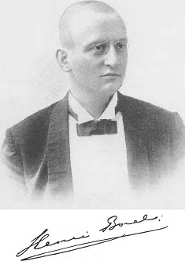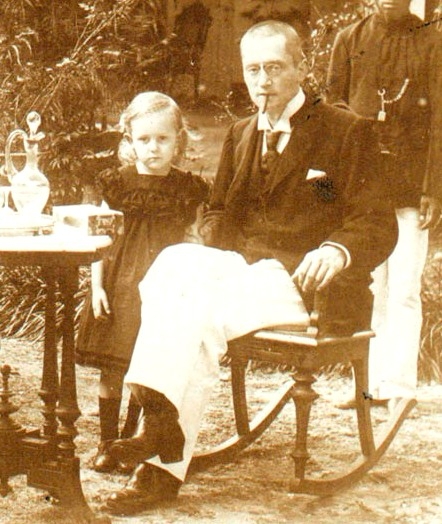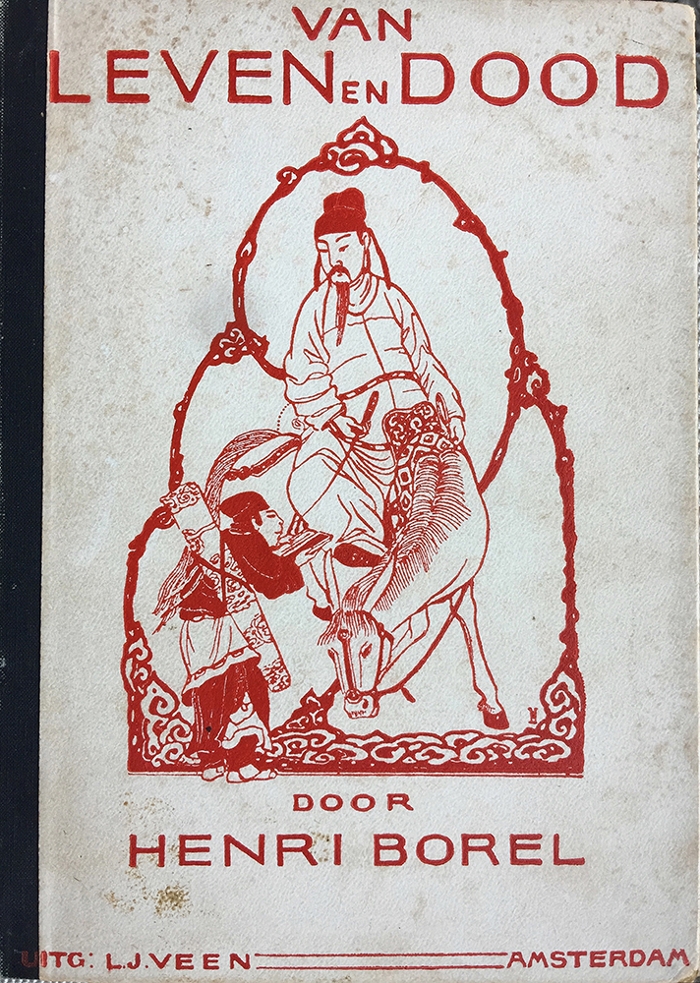
Henri Borel: a government official caught between two cultures
Audrey Heijns explored the mindset of alumnus Henri Borel. From 1894 to 1916 he was an interpreter of Chinese and later a government officer for Chinese affairs in the Dutch East Indies. Borel's way of 'translating' Chinese was both unique and inimitable. PhD defence on 28 June.
Chinese minority in Dutch East Indies
The Dutch East Indies has always had a fair proportion of Chinese inhabitants. Initially they went there as traders, extreme poverty having forced them to flee their fatherland in the 18th century. They worked on the plantations in the Dutch East Indies. Given the presence of the Chinese, all kinds of government documents had to be translated into Chinese and documents written in Chinese had to be translated into Dutch.

(© Letterkundig Museum)
Government official for Chinese affairs
Government officials for Chinese affairs were expected to advise the government on matters relating to the Chinese population and any ongoing issues among this sector of society. The aim was to fight corruption. Dutch authority was originally vested in Chinese officials, but because of the growing number of cases of fraud among these officials, there was a demand for Dutch experts who were able to translate documents, interpret in court and check the accounts.
Studied in Leiden, Xiamen and Bejing
Henri Borel's father was a high-ranking military man, just like his maternal grandfather. The young Henri was born in Dordrecht in 1869. He opted for a study of Hokkien Chinese at Leiden University (1888-1892) and continued his study for a further two years in Xiamen, China. This was in preparation for his appointment as an interpreter of Chinese and later as a government officer for Chinese affairs in the Dutch East Indies. In 1909, he spent a further four months in Beijing studying Mandarin. Borel was also a journalist, author and poet.
Conflict
During his work in the Dutch East Indies, Henri Borel came into conflict both personally and with his environment. This was the result of his view of the way in which he was expected to carry out his work. In his opinion, he could only do his work well by making an in-depth exploration of the Chinese language and culture and presenting his viewpoint from this perspective. ‘This was the reason,’ according to Heijns, ‘why he later learned Mandarin as well as Hokkien Chinese.’ In the context of his work, Borel made frequent visits to the Chinese community. In his view, the Chinese were not being treated well and Borel wanted to improve their position by writing about it. Heijns: ‘Borel identified himself with the Chinese and at times even published articles in newspapers that were not favourably inclined towards the government.'

Superior interpretation
There was also the fact that Borel was a poet, rooted in European romanticism, and he believed that this helped him understand the feelings and thoughts of the Chinese population group in the East Indies. He even went so far as to say that only a poet could really come anywhere near understanding the Chinese character. He was also influenced by Chinese and Buddhist cultural traditions. ‘Borel became increasingly convinced that his "interpretation" of the Chinese, the Indonesian Chinese people and China was the only true interpretation and was therefore superior. These views extended to his work as a government official,' Heijns explains.
A difficult position
By identifying so strongly with the Chinese, Borel came to doubt the validity of colonialism. Heijns: ‘This meant that he felt comfortable in the Dutch East Indies as a translator and interpreter, but not as a representative of the colonial government.' It put him in a difficult position. His viewpoint and assumptions resonated in his translations and reports to his employers. His work was not appreciated, and he had to move jobs several times.
Back in the Netherlands
While working as an interpreter and civil servant, Borel returned to the Netherlands several times for health reasons. The last time, he largely lost the sight in one of his eyes, which meant he was no longer able to work in the East Indies and he never returned there. He went to live in The Hague and started writing his art reviews. He also wrote a lot about China, both his own work - articles, essays and stories - and translations. 'Because he remained close to the source text and added introductions, footnotes and comments to his translations,' Heins explains, 'the reader gained a lot of explanation and information. That made his work more accessible for a broader public and it also influenced how the Netherlands viewed China in the late 19th and early 20th centuries.'

Influence in academia
But Borel made no friends among sinologists. Heijns: ‘He criticised the study of China and Chinese with western research methods.' In so doing, he made it impossible to be appointed to a position at his alma mater, Leiden University. But he did have influence there: changes in the curriculum and job description of a Professor of Chinese Language and Culture that dated from that time are the result of Borel's influence. He ensured that more attention was focused on contemporary China and on Mandarin.
Borel's romantic, poetic and non-academic approach was unparalleled but it did not endure. It later became evident that his approach led to wrong interpretations. Scientific practice proved to be more objective.
(CH)
